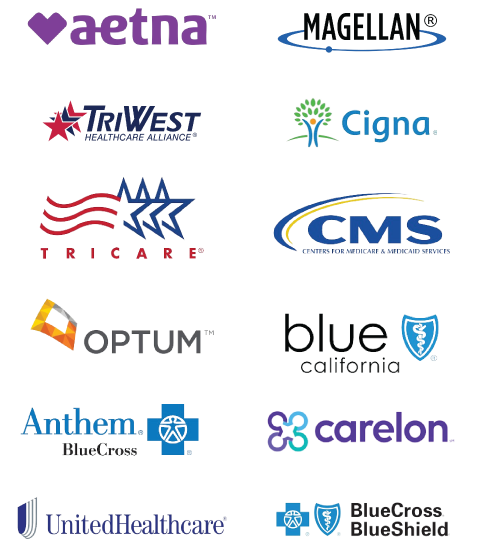
An “Addictive Personality” is a hypothesized set of personality traits which frequently crop up or are present in individuals who experience substance use disorder. These traits influence risk to addiction because they are risks to addiction. This article documents 8 of the most common, including impulsivity, sensation seeking, nonconformity, social alienation, stress, mental health disorders, chronic illness, and low mood.
The term itself receives a great deal of criticism, because it heavily overlaps with the medically proven “vulnerabilities to substance use disorder”, without adding anything new. In addition, the concept of an “addictive personality” can suggest to some that they cannot get better and will always return to drugs or alcohol. That isn’t true. Behavioral traits that increase your risk of substance use disorder can be trained out of you with behavioral therapy. You can release some of them with new experiences, by learning new habits, and by learning new coping mechanisms. And, as your brain and body change, so does your personality.
So, while this article refers to addictive personality traits, all of these traits can be changed. In addition, they can contribute to the likelihood of an addiction, but they don’t cause it. So, even if you have all 8 traits, you aren’t guaranteed to have an addiction, you’re just more at risk.
Impulsivity
Impulsivity, commonly known as risk taking behavior, is a massive contribute to substance use, which greatly contributes to the likelihood of addiction. For example, adults and children with higher risk-taking are more likely to accept drugs and alcohol from peers, to take drugs and alcohol to attempt to look “cool” to their peers, and to engage in risky behavior such as drinking and driving, using while at work, or using for no reason other than to feel good. Impulsive people are therefore much more likely to increase exposure to drugs and alcohol, which in turn, increases your risks of becoming addicted to that substance.
That’s further complicated by the fact that people who score high on impulsivity often do so after experiencing trauma, stress, or another adverse childhood experience. People who are stressed, who have experienced trauma, or who have difficulty dealing with problems in their lives are more likely to be impulsive. And, as you drink or use, you become even more impulsive. So, even this seemingly very simple “personality trait” can be incredibly complex.
Sensation Seeking
Sensation seeking, or the habit of going out to look for extreme and gratifying experiences, is a sign of vulnerability to substance abuse. Sensation seeking can manifest in someone’s love of rollercoasters or good food. But, it can also result in impulsively going out, dancing, drinking large amounts, fast food, and taking drugs. People who want to feel often want instant gratification, and drugs and alcohol are a perfect solution. They’re also more dangerous than something more mundane like sex or buying a season ticket to your local theme park – but are part of the same human need for sensation.
Nonconformity
People who don’t fit in and who don’t feel that they fit in or want to fit in are very likely to be vulnerable to substance abuse. That ties into the next section, social alienation, but also into the willingness to partake in something that is considered social taboo. For example, if you have a poor relationship with socially valued goals, socially valued morals, etc.
In fact, many people who are pushed into substance abuse through nonconformity have negative relationships with authority such as their parents or the law. That might stem from very good reasons, but eventually makes the individual more vulnerable to substance abuse because you’re less likely to see it as a taboo and more likely to go “why not, I don’t trust the people telling me not to”.
Social Alienation

Social alienation, or feeling outside of a group, puts you at significant risk of drinking or using more than you should. That extends to light cases, where you feel anxious or nervous and use alcohol as a social lubricant and to extreme cases, where someone might feel completely ostracized and unwanted. In both cases, the lack of social interaction or stimulation result in negative mood and feelings, which contribute to worsening substance abuse. Even in the first case, where someone might think they’re having a few beers to ensure they can have fun at a party, you’re literally training your brain to think you can’t interact with people without alcohol, then anxiety kicks in when you try and you can’t interact with people, reinforcing the belief. Eventually, you need the alcohol to manage social situations and start drinking way too much just to keep up.
Chronic Stress
Long-term stress is one of the most significant contributors to addiction. If you’re experiencing long-term stress at home, work, or school, you’re highly likely to be vulnerable to addiction. That’s why students in high pressure studies, like medicine, are very likely to abuse and become addicted to drugs or alcohol. That’s why high-pressure jobs like doctors, lawyers, and politicians result in a high prevalence of substance use disorder. Stress can stem from anything, but the more you’re stressed, the more vulnerable you are, especially if you don’t have good coping mechanisms in place.
Mental Health Disorders
Mental health disorders like anxiety, depression, bipolar disorder, and schizophrenia significantly increase your vulnerability to addiction. While not expressly “a personality trait” they are part of you and your personality. And, they increase your likelihood of substance use disorder by more than 50%. However, while some 40% of all individuals with a mental health disorder eventually struggle with drugs or alcohol, that doesn’t’ mean you have to live with the problem. Getting treatment for both the mental health disorder and the addiction will help you to move past both.
Chronic Illness
The more you are in pain, the higher your chances of becoming addicted. That’s exacerbated by the fact that individuals with chronic illness are often handed addictive medicine to manage pain. But, while prescription pain pills are addictive, chronic illness contributes to increased vulnerability to addiction in other ways. For example, by isolating you, lowering self-esteem, making it harder for you to do things on your own, making it more difficult for you to participate in things you enjoy, and possibly cutting you off from exercise that would help you to feel better. So, this is again, incredibly complex and can contribute in multiple ways.
Low Mood
Low mood, sometimes called neuroticism, is a personality trait of frequently experiencing low or negative emotions. For example, you frequently feel stressed, jealous, angry, upset, or lonely – even when people are otherwise there. This type of emotional reaction can overlap heavily with borderline and bipolar personality disorders but might also be undiagnosable. However, it will still impact your mental health and your ability to stay clean and sober.
Your vulnerability to drugs or alcohol is determined by dozens or even hundreds of factors, ranging from your mood and personality to your epigenetics and parents. Eventually, exposure is the only thing that results in addiction, despite the fact that other factors contribute. If you are at risk, your best option is to approach alcohol with caution and to avoid drugs wherever possible. If you’re already struggling, seek out help. Behavioral therapy can help you to build self-esteem, to build a positive attitude, to learn how to enjoy things, and to cope with stress, pain, and anxiety in new and healthy ways.
If you have any questions about helping your loved one get into drug rehab, alcohol rehab, or mental health treatment, please contact us today. We are here to help and our experienced addiction advisors are standing by to answer any questions.






